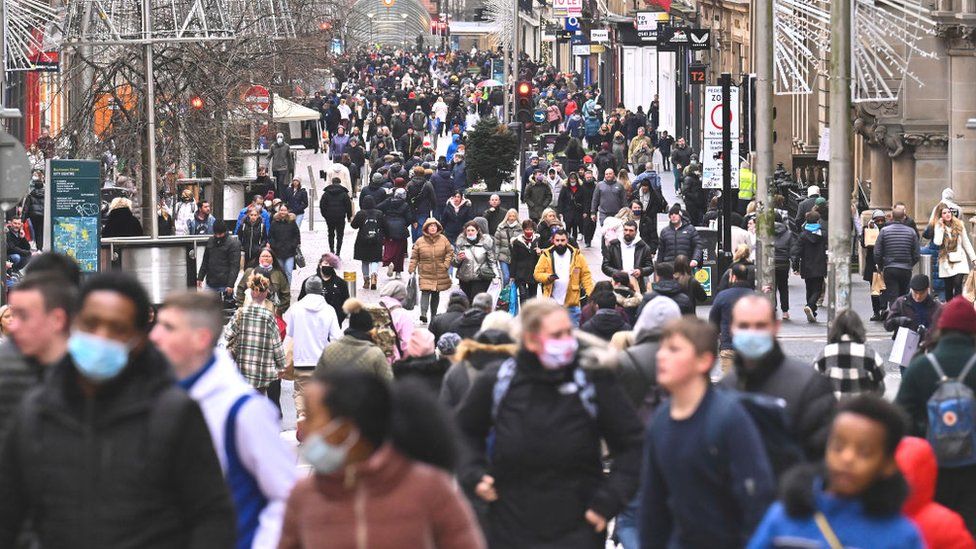
Scottish Retail Consortium (SRC) figures suggested sales dipped slightly from a more buoyant March, while remaining close to pre-pandemic levels.
SRC said household finances were under strain from inflation, tax rises and other bills.
It warned that the retail recovery was “still very much in its infancy”.
The figures showed that total food sales last month rose year-on-year by 2.9% and by 3.5% on the same period three years ago, before the pandemic struck.
The non-food category increased by 25.7% in April, compared with the same month last year, but were 3.9% down on April 2019.
The retail consortium said the latest figures were “flattered somewhat” by rising shop price inflation.
In April, clothing and accessories, footwear and beauty products were lifted by the return to office working, more social occasions such as weddings, and holidaying.
However, SRC added that sales of bigger ticket items such as electricals, household appliances and furniture were “lacklustre” as a result of recent spikes in inflation and taxes.Retailers said sales of bigger ticket items such as household appliances were “lacklustre”
Director David Lonsdale said that while the figures had “lost a little of their lustre” from March, retail sales were still at their second-highest level for two years.
He added: “The retail recovery is still very much in its infancy and the outlook has to be tempered in light of the pressures on consumer spending.
“Household finances are under strain as inflation, tax rises and other bills take a bite out of shoppers’ purses and wallets.
“Disposable incomes simply do not stretch as far as they used to, presenting Scotland’s retailers with a more challenging marketplace.”
‘Pressure on consumers’
KPMG UK head of retail Paul Martin said: “The cost-of-living crisis came home to roost for Scottish retailers in April, with sales growth stalling after a relatively promising start to the year.
“Pressure on consumers tightened considerably with the increase in energy tariffs and the higher cost of food and other commodities.
“Easter holiday spending helped food sales grow, and while they are ahead of pre-pandemic levels, are unremarkable when inflation is taken into consideration.”
He added: “Many retailers may benefit from pent-up demand in the short term although in the mid term will have no choice but to raise prices to protect margins.
“But the longer we see high inflation and real household incomes falling, the more likely it is that consumers will change their spending behaviour, prompting a decline in the health of the retail sector and possibly more casualties on the high street.”






